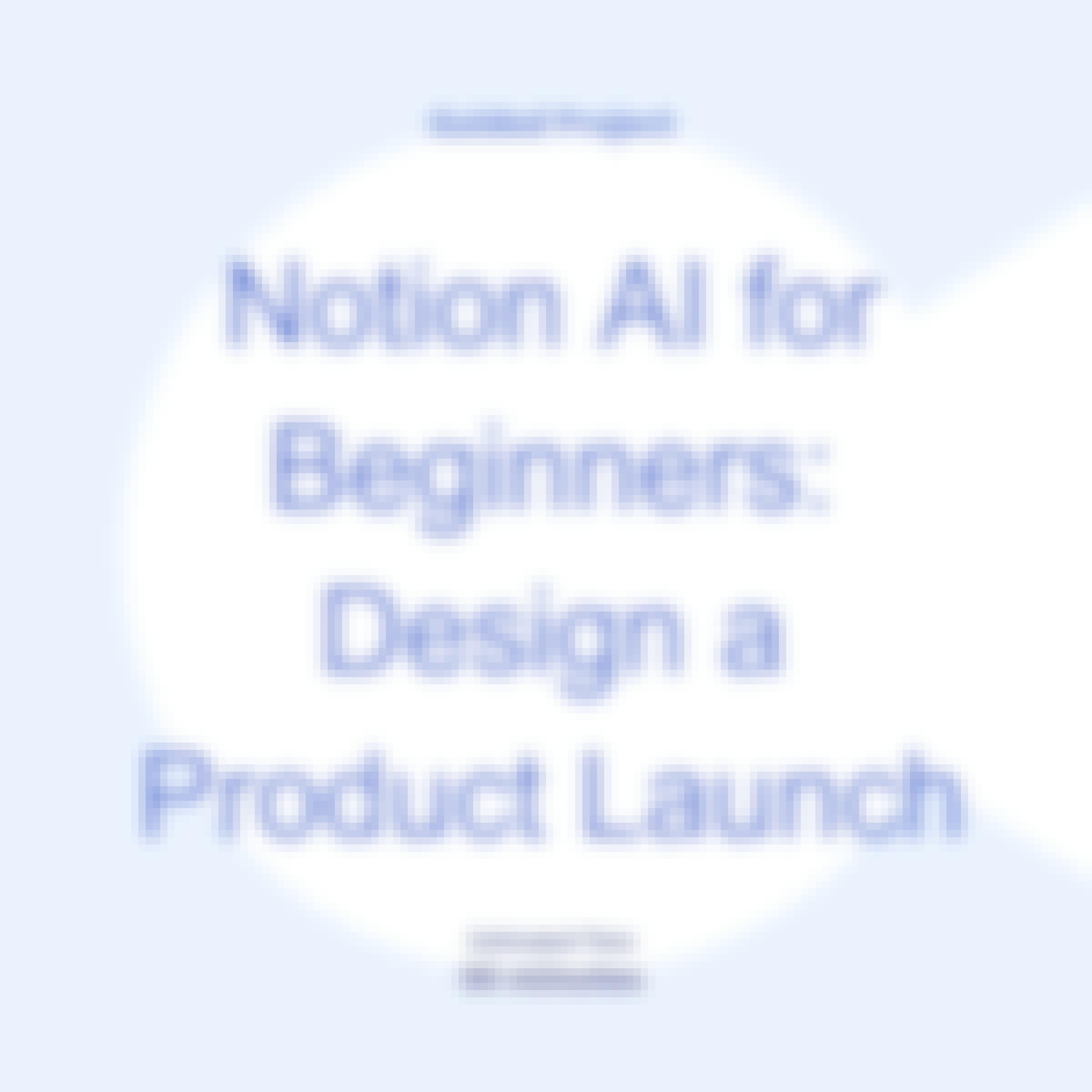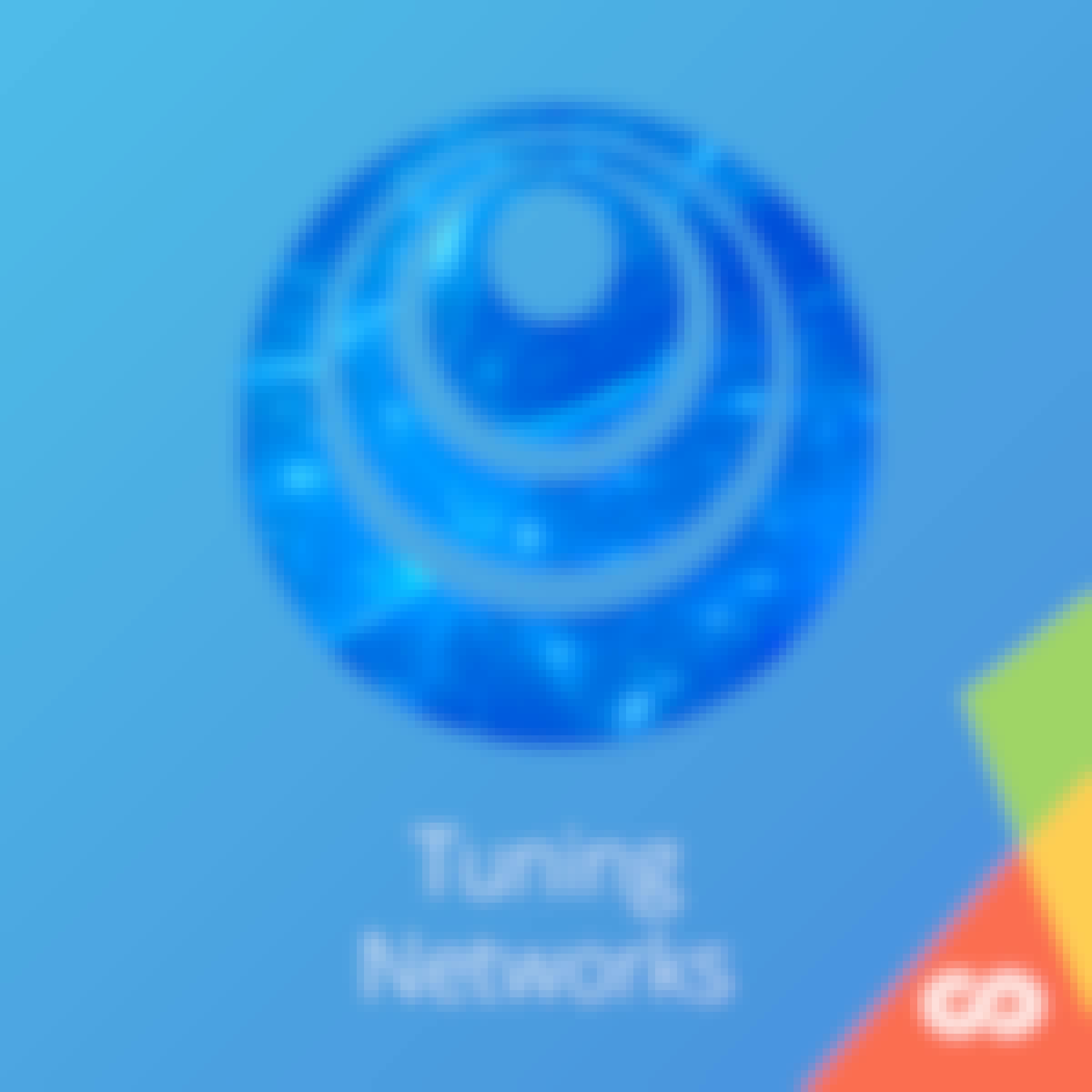- Browse
- Artificial Intelligence
Artificial Intelligence Courses
Artificial intelligence courses can help you learn machine learning algorithms, natural language processing, computer vision, and neural networks. You can build skills in data analysis, predictive modeling, and automating tasks using AI techniques. Many courses introduce tools like TensorFlow, PyTorch, and Scikit-learn, that support implementing AI solutions and developing applications that leverage these advanced technologies.
Popular AI Courses and Certifications
 Status: Free TrialFree Trial
Status: Free TrialFree TrialSkills you'll gain: Active Listening, Business Communication, Communication, Professional Development, Professionalism, Emotional Intelligence, Adaptability, Sales, Job Analysis, Personal Attributes, Professional Networking, Presentations, Teamwork
Beginner · Course · 1 - 4 Weeks
 Status: Free TrialFree TrialW
Status: Free TrialFree TrialWWhizlabs
Skills you'll gain: Model Evaluation, AWS SageMaker, Predictive Modeling, Data Modeling, Amazon Web Services, Machine Learning, Machine Learning Algorithms, Performance Tuning
2.6·Rating, 2.6 out of 5 stars7 reviewsBeginner · Course · 1 - 4 Weeks
 Status: FreeFreeA
Status: FreeFreeAAmazon Web Services
Skills you'll gain: Applied Machine Learning, Machine Learning, AI Enablement, MLOps (Machine Learning Operations), Technology Roadmaps, Data-Driven Decision-Making, Artificial Intelligence and Machine Learning (AI/ML), Business Analytics, Business Solutions, Organizational Strategy, AI Product Strategy, Organizational Change, Product Roadmaps, Feasibility Studies, System Requirements, Solution Design, Training Programs
4.8·Rating, 4.8 out of 5 stars13 reviewsBeginner · Course · 1 - 4 Weeks
 Status: Free TrialFree Trial
Status: Free TrialFree TrialSkills you'll gain: Electric Power Systems, Safety Standards, Safety and Security, Emerging Technologies, Control Systems, Global Positioning Systems, Environmental Issue, Computer Vision, Artificial Intelligence, Algorithms
4.6·Rating, 4.6 out of 5 stars12 reviewsBeginner · Course · 1 - 4 Weeks

Skills you'll gain: Blogs, Search Engine Optimization, Brand Marketing, Content Marketing, Keyword Research, Content Creation, Web Analytics, Customer Engagement, Thought Leadership, Customer Relationship Building, Content Management Systems, Business Marketing
4.6·Rating, 4.6 out of 5 stars22 reviewsBeginner · Guided Project · Less Than 2 Hours
 Status: FreeFreeT
Status: FreeFreeTThe University of Sydney
Skills you'll gain: Diversity Awareness, Cultural Responsiveness, Social Justice, Workplace inclusivity, Cultural Diversity, Empathy & Emotional Intelligence, Cultural Sensitivity, Discussion Facilitation, Advocacy, Interpersonal Communications
5·Rating, 5 out of 5 stars12 reviewsBeginner · Course · 1 - 3 Months
 Status: PreviewPreview
Status: PreviewPreviewSkills you'll gain: Data Visualization Software, Data Modeling, Dashboard, Data Literacy, Interactive Data Visualization, Data Presentation, Data Processing, Data Storytelling, Data Transformation, Data Preprocessing, Data Integration, Data Cleansing, Business Intelligence, Data Import/Export, Data Analysis, Data Quality, Key Performance Indicators (KPIs)
4.9·Rating, 4.9 out of 5 stars13 reviewsIntermediate · Course · 1 - 4 Weeks
 Status: FreeFree
Status: FreeFreeSkills you'll gain: Brainstorming, Organizational Skills, Prioritization, Creativity, Productivity, Press Releases, Generative AI, Databases, Technical Documentation, Artificial Intelligence, Project Management, Content Management
Beginner · Guided Project · Less Than 2 Hours
 Status: Free TrialFree TrialU
Status: Free TrialFree TrialUUniversity of Alberta
Skills you'll gain: Virtual Teams, Recognizing Others, Conflict Management, Emotional Intelligence, Empathy & Emotional Intelligence, Collaboration, Occupational Health, Teamwork, Stress Management, Employee Engagement, Mental Health, Occupational Safety and Health Administration (OSHA), Crisis Management, Workplace inclusivity, Occupational Safety And Health, Human Resource Policies, Self-Awareness, Resilience, Communication, Leadership and Management
Beginner · Specialization · 3 - 6 Months
 Status: Free TrialFree TrialU
Status: Free TrialFree TrialUUniversity of Colorado System
Skills you'll gain: Classification And Regression Tree (CART), AI Personalization, Marketing Analytics, Unsupervised Learning, Customer Analysis, Predictive Analytics, Applied Machine Learning, Supervised Learning, Dimensionality Reduction, Marketing Effectiveness, Marketing Strategies, Data-Driven Decision-Making, Strategic Marketing, Campaign Management, Customer experience improvement, Personalized Service, Customer Insights, Model Evaluation, Machine Learning
Intermediate · Course · 1 - 4 Weeks

Skills you'll gain: Web Scraping, Real Time Data, OpenAI API, Natural Language Processing, Python Programming, Web Applications, Language Interpretation, Translation, and Studies, Application Development, Machine Learning
4.5·Rating, 4.5 out of 5 stars8 reviewsIntermediate · Guided Project · Less Than 2 Hours
 Status: PreviewPreviewD
Status: PreviewPreviewDDeepLearning.AI
Skills you'll gain: Tensorflow, Deep Learning, Data Compilation, Data Preprocessing, Artificial Neural Networks, Model Evaluation, Performance Tuning, Machine Learning Algorithms, Machine Learning
Beginner · Course · 1 - 4 Weeks
Searches related to artificial intelligence
In summary, here are 10 of our most popular artificial intelligence courses
- Dell Technologies Introduction to IT Sales: Dell
- Modeling in AWS: Whizlabs
- Machine Learning Essentials for Business and Technical Decision Makers: Amazon Web Services
- The Road to Autonomy: Exploring EV Technologies: Coursera
- إنشاء صفحة أعمال مجانية باستخدام Blogger: Coursera
- Confident Conversations About Race and Racism: The University of Sydney
- Data Ingestion, Exploration & Visualization in Qlik Sense: Coursera
- NotionAI for Beginners: Design a Product Launch: Coursera
- Vitality in a Dynamic Workplace: University of Alberta
- Machine Learning for Marketers: University of Colorado System










